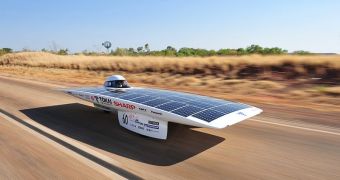Launching electric vehicles having a minimum impact on air quality is definitely not enough for famous automakers. The main target seems to be a new generation of vehicles that could power households, and provide some extra power to the energy grid.
Major companies say that a vehicle-to-grid system would be the key element of a sustainable future. American scientists have come up with a plan aiming to develop green vehicles that give back, Greendiary informs.
The goal is to redirect the supplying excess power from the car battery to an electrical grid. These improvements could indeed increase the price of new vehicles, but in turn they would offer other financial advantages, since the grid would pay for all the energy obtained from automobiles.
Renewables are a big part of the puzzle, since the futuristic design would guarantee that both wind and solar power are harnessed and turned into viable energy.
The new generation of cars could have solar panels installed on their roofs, capturing and storing solar power that will be distributed to the grid through the innovative Vehicle-to Grid technology.
The grid is not the only destination, since the new generation of cars could even supply our own households with energy.
Nissan is one of the major players interested in exploiting this possibility. The company seems to be certain that the car of the future could power a television, a refrigerator or an air-conditioner from our house, in case of an emergency, for up to two hours, leaving us enough time to solve the problem.
As we speak, scientists think they would be able to exploit a strong connection between cars and power grids.
The Vehicle-to-Grid is also expected to work the other way around, helping drivers forget about the “range anxiety.” Apparently, smart EV would be able to take as much power as they need from the energy grid.
Even though changes are still far away, a much-desired implementation would have a large series of benefits: less greenhouse gas emissions, therefore less respiratory problems, less or no energy shortages and reduced gasoline usage.

 14 DAY TRIAL //
14 DAY TRIAL //